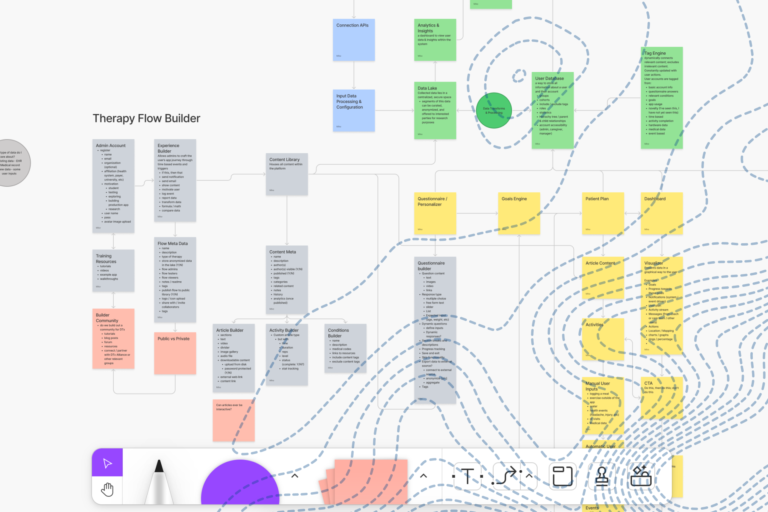Let’s get this out of the way: I’m a lawyer. I earned a JD and an MBA from Rutgers-Camden. But instead of practicing at a firm, my legal career took a less common route. And I feel that the story of how I got from there to Arcweb is worth sharing because it highlights how someone on a non-tech career path can pivot into one.
Rewinding back to June of 2012, I joined Artists & Instigators (later to become SeventySix Capital), a Philadelphia-based venture capital firm. There, I combined legal, operations, and finance into one role and got exposed to a high volume of tech companies and startups. From that experience, the writing was on the wall: I needed to go work for a tech company. But there was the natural immediate hurdle: I don’t code. And in an industry saturated with the “you gotta learn to code” mantra, it felt somewhat daunting.
But here’s the thing: successful tech companies are businesses—and they require all the standard disciplines and skill sets that any other type of company does. They need accounting. They need HR. They need marketing and sales and legal and management. So at that moment when I knew working for a tech company was my path, I looked back at my career and said, “How do I take what I’ve done and pivot it towards a career in tech?”
Here’s how…
Get Over the Intimidation
It’s easy to look around the tech world and be intimidated by genius developers and software savants. They’re insanely smart people dominating a world you’re just stepping in to. But if you’re willing to learn, eager, and passionate about being a part of a great team, you’ll be surprised at how welcoming people in this community are.
Dive into the Scene
Learning how to swim only works if you first jump in the water. Go to your local tech Meetups. Joinrelevant mailing listservs. Ask questions. Answer questions! The more you participate, the better.
Match Your Skills to Tech Company Needs
Like I said, tech companies need non-technical assets. Are you great at evaluating talent? Then it shouldn’t matter if you’re scouting engineers or baseball players. Promote your eye for talent. The same can be said for other disciplines. If you’re a whip-smart CPA, a tech company with a lack of financial brains can use you.
Building a digital product?
Think Technically
Just because you don’t code doesn’t mean you can’t think with a technical mind. The ability to think through problems, solutions, and outcomes applies to anything, not just your area of expertise.
Dabble
In any interview—whether the job is technical or business-oriented—the interviewer is going to ask about what you do on the side. For the non-technical person working to get on board at a tech company, dabbling in technical projects in your spare time is critical. Create and customize a WordPress blog. Fiddle around with email html. Do something that you can point to and say, “Hey, I made this.”
GSD
There’s a more profane version of this, but it stands for Get Stuff Done. Indy Hall has their own version: JFDI. You don’t need to know the actual words to understand the meaning. Being a part of a young tech company means that you do whatever needs to be done to survive. No less. This is the impression you need to impart in interviews.
Versatility
We make an effort to hire polyglot engineers. Their value is in their ability to solve problems with technology, not a particular skill or specific language. The same goes for non-technical folks. I have no doubt that my two degrees, experience in finance, recruiting and operations, and ability to communicate effectively were reasons I was able to successfully make the pivot from law to tech.
No BS
Making the switch is about finding the right opportunity, not just any opportunity—and if you exaggerate your capabilities, you’re going to find yourself in the wrong place. In retrospect, the jobs I didn’t get were blessings in disguise. They were for positions where my skills and ability would not have been maximized. This reminds me of a lesson from a Sales Evolution class I took with Scott Messer: “Don’t sell them what you want to sell—sell them what they want to buy.” For the sake of a non-tech getting into tech, that means eliminating canned answers. Instead, have an honest conversation. That’s the only way it works out in the long run.
Network
This is a little practiced but highly underrated skill. While I was trying to make the transition from law to business, I met with, spoke on the phone with, or otherwise communicated with more than 300 people in the year before I landed at Arcweb. I used LinkedIn to connect with people that had the jobs I wanted or worked at the companies I wanted to work at. Not all of those leads panned out. Actually, the majority didn’t. But many of those connections imparted invaluable advice and are in my network forever. That has tremendous value for future business opportunities, relationships, etc. Bottom line: get out there and meet people. When you’re looking to make this pivot, talk to anyone and everyone.
Be Persistent
Not every tech company is going to look at a non-engineer in a progressive way. That’s OK. The company that ultimately says “yes” will, in doing so, tell you all you need to know.
I’ll end this post with a bonus tip. It’s perhaps the most important… Even if you currently don’t know how to code but are committed to landing a gig at a tech company, learn how software products work. If you weren’t a mechanic but wanted to work in a garage, you’d want to at least know what you’re looking at when you popped the hood of a car. It’d be to your benefit to know where the engine is, how it generates power, how the systems interact, etc. The same goes for having a general understanding of how software products work.
Think you’re ready to pivot your career? Email me your story.



